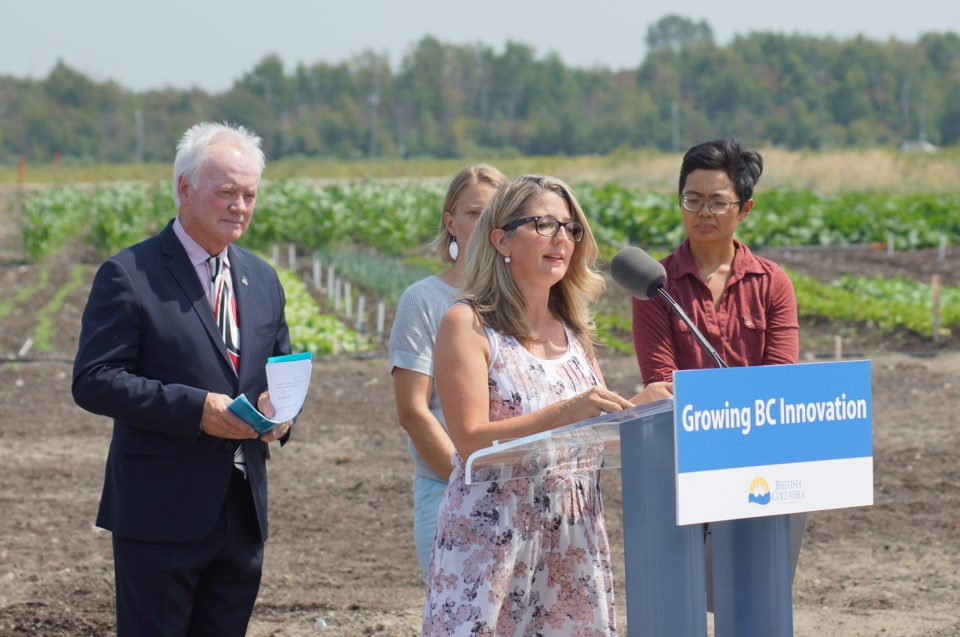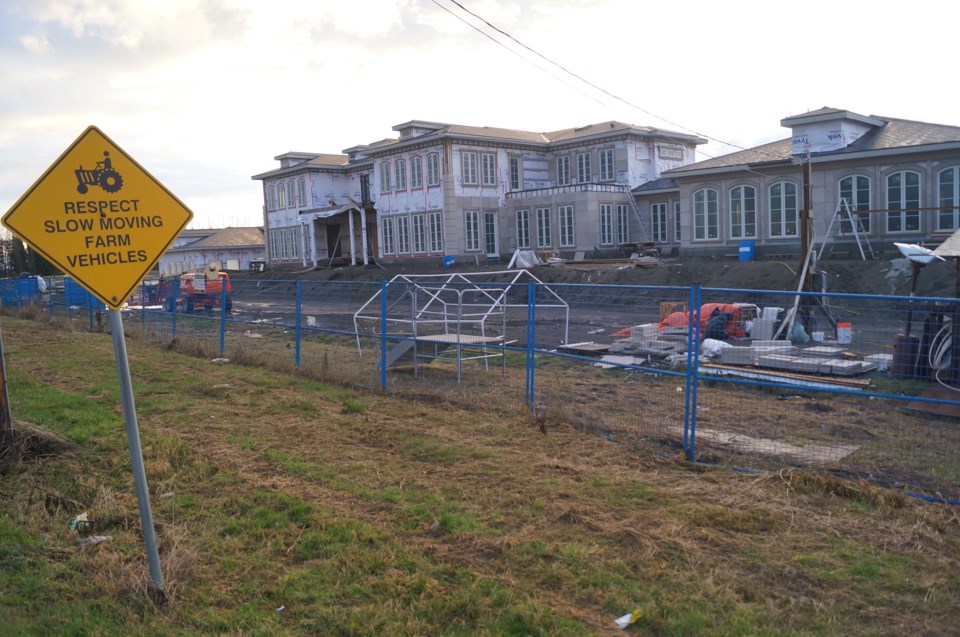Legally limiting house sizes on protected farmland is among 13 recommendations for “immediate legislative and regulatory change” put forth this month in a provincial advisory committee report to Minister of Agriculture Lana Popham.
“We can expect to see changes coming forward in the fall with regards to that,” Popham told the Richmond News.
Such a change would overrule controversial bylaw decisions made by Richmond city council over the past two years.
Last year, Popham created the Advisory Committee for Revitalizing the Agricultural Land Reserve (ALR) and the Agricultural Land Commission (ALC), to guide what is expected to be sweeping changes to the ALC Act aimed at better protecting farmland and increasing food production.
Although many farming advocates say speculative estate houses are growing at a precipitous pace and thus harming farming viability in many parts of the province, including Richmond, Popham said she wanted to wait for the report to make all the changes to the Act at once.
“Personally I am very opposed to [large houses on the ALR]. The Agricultural (Land) Reserve’s mandate is to protect agricultural land and encourage farming. We want to see, under our government, the most production coming from this very small base of food security we have in the province.”
The report was welcomed by Richmond Farmwatch members, who failed to convince city council to bring house sizes in line with the existing Ministry of Agriculture guidelines of 5,382-square-feet — which is what the committee is recommending.

“The report identifies two critical concerns that the province needs to address immediately that cannot wait until the final report is submitted — to put ‘agriculture first’ in all decisions related to the ALR and the urgent need to curb speculation in the ALR,” said member Michelle Li, via email.
“The issue is a major concern in Richmond with the daily loss of farmland to mega mansions,” added Li.
In Richmond, the reduction of ALR houses from the existing 10,760-square-feet in size, to half of that, has widespread and bi-partisan support, including from the B.C. Green Party and all four B.C. Liberal Party MLAs. But six city councillors (Chak Au, Derek Dang, Ken Johnston, Alexa Loo Bill McNulty and Linda McPhail) voted to keep larger homes this year, following a review of the city’s residential bylaws. The six also went against the recommendations (5,382-square-feet) of their own city planners, who cited land economist Richard Wozny claiming anything over 4,200-square-feet would skew Richmond farmland prices to the detriment of the industry.
Farmwatch’s John Roston said it is “amazing” to have the provincial government step in and overrule city council.
But while the committee claims to have “heard unanimous support across the province for prohibiting ‘estate-style homes’ in the ALR and for restricting residences over an established size,” some farmland owners continue to oppose the change.
Gunraj Gill, spokesperson for Richmond Farmland Owners’ Association (RFOA), said limiting house sizes even further could jeopardize some Richmond farmers. The group claims multigenerational farming families need larger homes and, also, reducing home sizes can imperil land values.
“Keeping land value high allows farmers to borrow against their properties,” in difficult financial times for farmers, said Gill.
Gill poked holes in the report, specifically the perceived lack of feedback.
However, he said the group agreed with many other recommendations, such as examining the income thresholds for farmland tax credits, which are perceived by most people to be too low and a facilitator of speculation on the ALR.
“The main thing for us is, we’re not just going to come out and completely oppose this report. We don’t want this report to be seen as a solution but the first step to long discussions across the province.”
Of 2,271 responses, 79 per cent agreed regulation of residential uses in the ALR is required. Meanwhile 14 per cent said such uses should “sometimes” be regulated. Only six per cent did not want such regulations.
The report also examined issues such as oil and gas exploration on the ALR, illegal dumping of fill and restricting cannabis production on prime (class 1) lands, such as Richmond.



